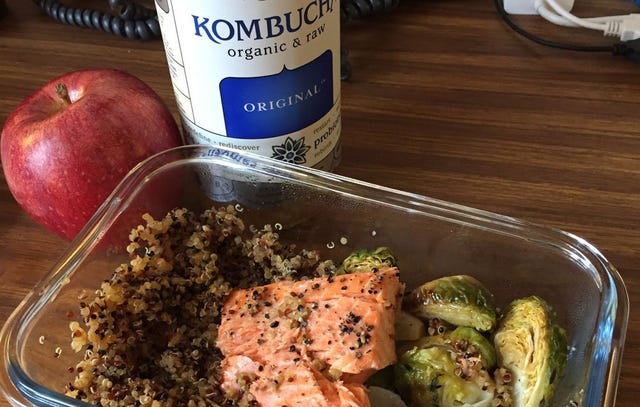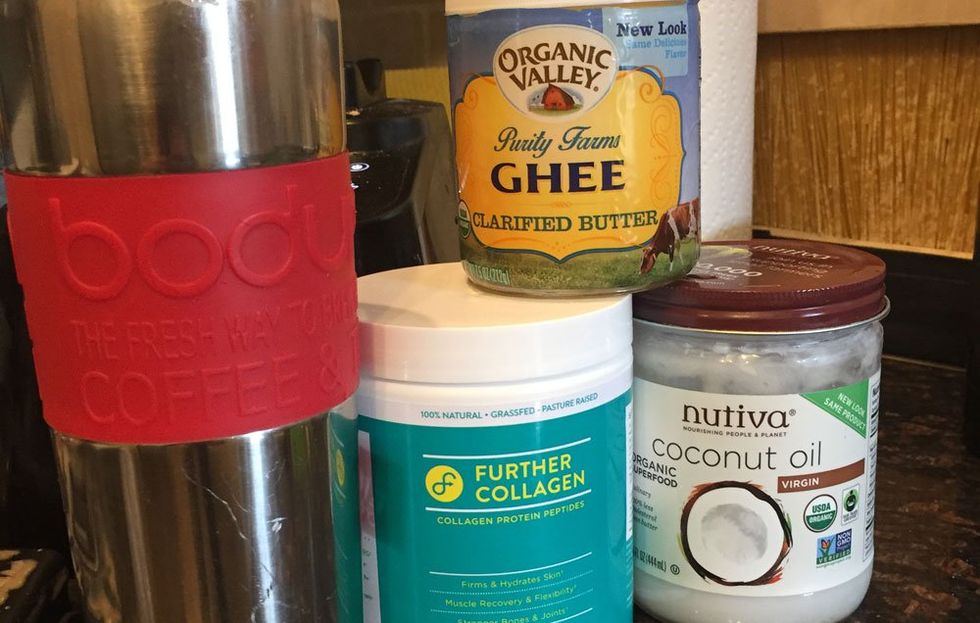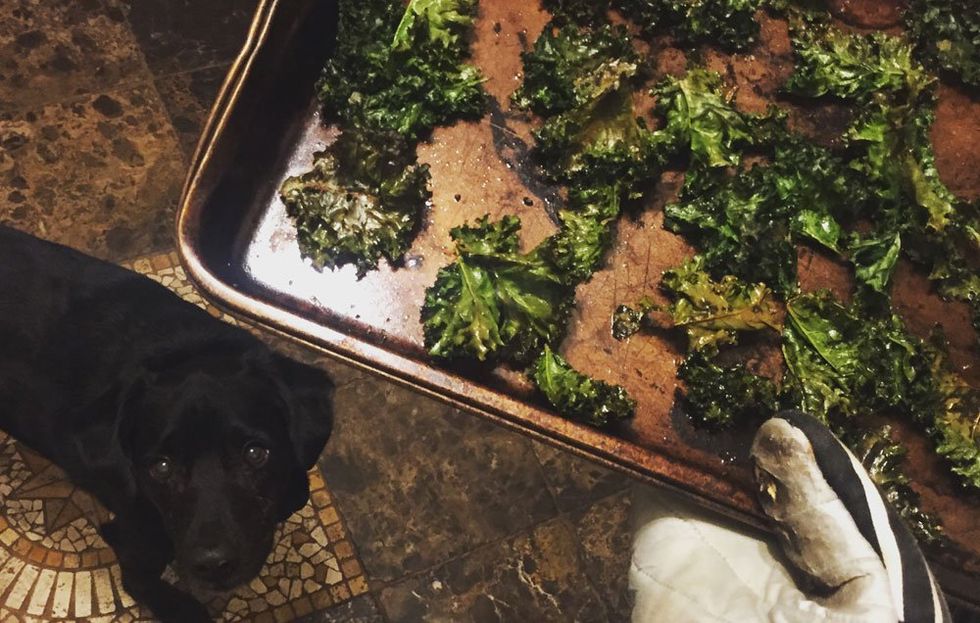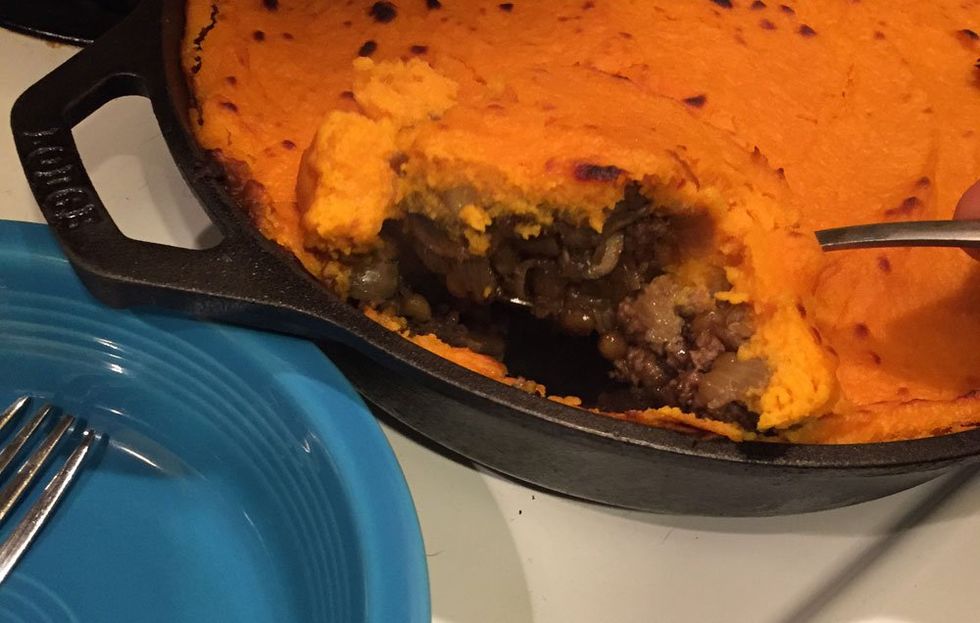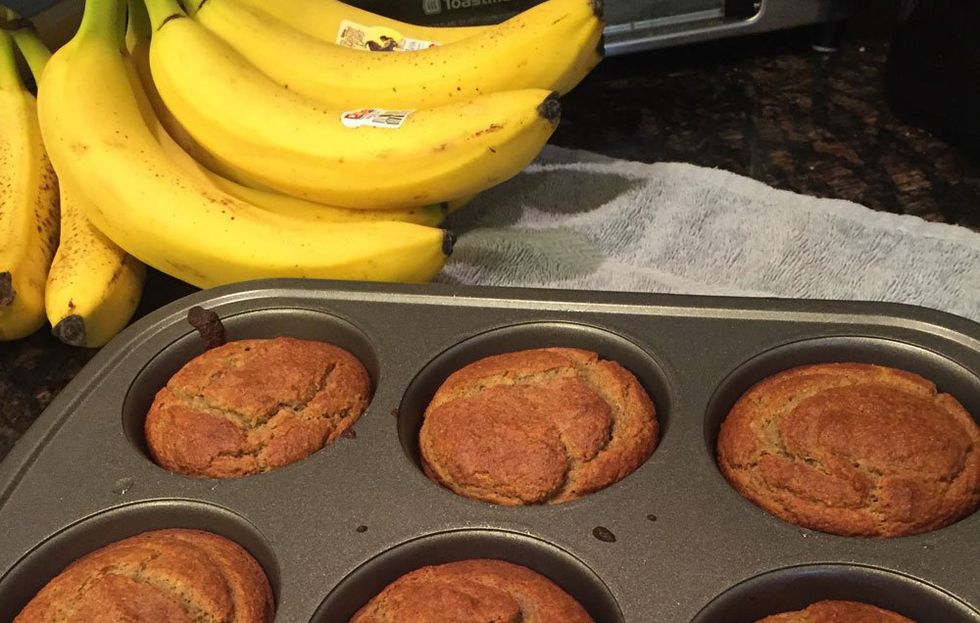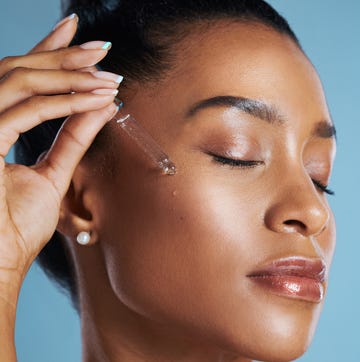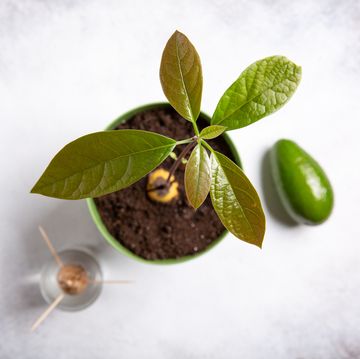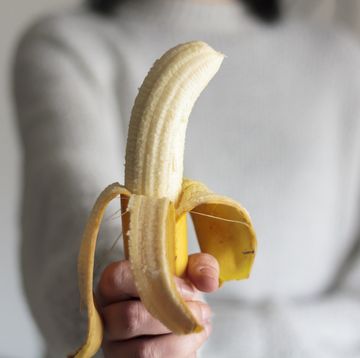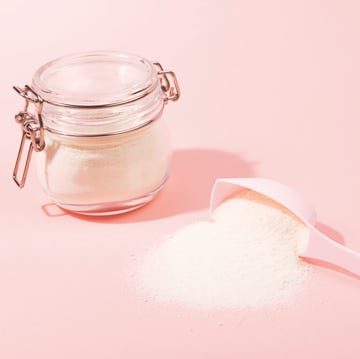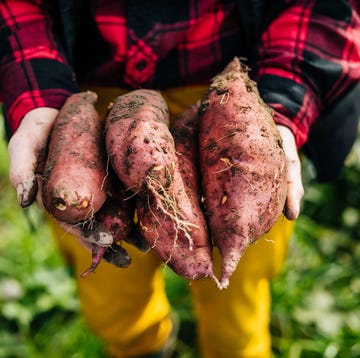This story originally appeared on Rodale’s Organic Life in April 2017.
I’ve never been diagnosed with anxiety, but I’ve been an anxious person for a good chunk of my life, with my anxiety levels steadily increasing to a high point in my mid-twenties while juggling a magazine editing job and Lyme disease—a combo that would stress out just about anyone.
But even when my treatment for Lyme disease ended, and I felt pretty much cured, the anxiety remained. I’d spend far too much time worrying what people think, being afraid to ask for what I want, overanalyzing peoples’ looks, feeling inadequate at work compared to everyone else (like, how did they hire me—don’t they know I’m stupid?), and picking at my cuticles or biting my nails until they bled. I couldn't stop.
My stress, anxiety, and lack of confidence would often leave me paralyzed when faced with large amounts of work (which was often), and I couldn't seem to focus or get anything done without munching on something—usually salty or sweet, and crunchy. But while that got me through a given task, I’d end up feeling guilty about it later, which would distract me from what I needed to do, thus perpetuating the cycle.
It was freakin’ exhausting. But then I came across research about probiotics playing a role in mental health, and a study on magnesium deficiency and stress, then another about the key role omega-3s play in brain health—and I thought, huh, this is pretty cool. So I began reading books and articles by Drew Ramsey, assistant clinical professor of psychiatry at Columbia University and author of The Happiness Diet—a guy who has devoted his career to researching and writing about various nutrients’ effects on mental health. And eventually, I thought, I can fix this.
So I started, little by little, making changes to what I ate (along with walking a few miles a day with my dog), and eventually, the anxiety began to lift, or often transform into what I like to call productive stress—the kind that prompts me to take action, but doesn’t totally overwhelm me. In broad terms, I ditched nearly all processed, highly palatable foods and focused on eating a whole foods based diet—but I credit a good chunk of my success to the specific foods I was eating within that framework.
I’m still not perfect, but I’m far happier, calmer, and more efficient than I used to be. Here are the 8 main foods I used to make that happen:
More Solid Food, Fewer Smoothies
I’m a nutrition nerd, and I love the idea of cramming as much nutrition as possible into a single cup. So naturally, smoothies became a go-to. Over time, however, I was noticing that whenever I drank one for breakfast, I’d get hungry quite early in the morning. My energy levels would dip within two hours, I’d get cranky and distracted, and I’d need to reach for another snack.
While smoothies are far superior to juice, they’re still much more quickly digested than solid food—meaning your smoothie moves more quickly through your digestive tract, sometimes causing blood sugar spikes and dips, and you’re not as full for nearly as long as you would be if you ate an equal number of calories of solid food.
When I made a point to avoid liquefied food in the mornings—swapping it for 3 eggs, which are loaded with brain-boosting choline, vitamin B12, vitamin D, and vitamin E—I felt fuller longer, which allowed me to focus at work without as many distractions before lunch.
More Fat And Protein, Less Sugar
In the past, I might run out the door with a piece of fruit for breakfast, thinking nothing of it. But now, I make a point to get plenty of protein and fat. Not only do they keep me satisfied for longer than carbs, but protein plays a key role in the synthesis of various feel-good neurotransmitters like serotonin, while omega-3 fats—found in grass-fed butter and ghee, grass-fed beef, and salmon—are thought to reduce inflammation in the brain and improve mood. Studies show that people who consume higher levels of omega-3s tend to have lower levels of anxiety and an easier time coping with stressful situations.
Normally, I eat eggs scrambled in organic grass-fed ghee with some veggies for breakfast. But on days where I want to switch things up, I’ll blend my coffee with a bit of ghee, coconut oil, and protein-rich collagen powder and have that along with an apple, banana or some blueberries. I also eat salmon at least once a week for dinner, and have some wild caught tuna fish for lunch a day or two a week, which helps me hit my omega-3 mark.
Related: 7 Foods That Can Make You Feel Totally Anxious
Loads Of Herbal Tea
When I’m anxious, I want something to soothe me—which is why I’ve often turned to junky foods. But I’ve found that drinking loads of tea, and other warm liquids, helps tremendously. (Not sure if it’s just me, but being cold totally exacerbates my anxiety and stress.) If I have to write an article and I’m feeling a bit nervous about it, I’ll fill up my mug with hot water and one of the many tea bags in my bottom desk drawer. Something about the temperature just calms my entire body, helping me get things done. My go-to teas include Traditional Medicinals Ginger Aid, Tazo Organic Baked Cinnamon Apple, and Organic India Tulsi Sweet Rose (this last one contains tulsi, aka holy basil, an adaptogenic herb thought to help your body adapt to stress).
Also, I’m certainly not anti-coffee, I just try to stick to one cup in the morning, then herbal or green tea later in the day—research has shown that caffeine releases hormones like adrenaline and norepinephrine, which make you alert (good), but also trigger your fight or flight response, which can increase irritability and anxiety if you drink too much (not good).
All The Healthy Crunchy Snacks
I don’t think I’ll ever get over my need to crunch on things—for some reason, it really does hone me in on a task and help me focus. But instead of munching on high-calorie, highly addictive foods like salty chips (even if they are whole grain!), I make sure I’m stocked with plenty of low-cal crunchy veggies like carrots, bell peppers, cucumbers, and celery; or raw nuts like almonds and cashews. If I have time, I’ll even make some homemade kale chips with olive oil and sea salt (shown above...my dog Milo clearly likes them, too).
This hits two birds with one stone: Not only am I satisfying my oral fixation, but I’m getting in a boatload of vitamins, minerals, and fiber—all of which contribute to a positive mood. A recent American Journal of Public Health study found that eating 8 daily servings of fruit and vegetables was linked to increased happiness and greater life satisfaction and wellbeing, regardless of personal circumstance or income.
Related: 5 Foods That Help You Reduce Your Anxiety Naturally
Gut-Friendly Foods
Given the fact that I was on antibiotics for two years to treat my chronic Lyme disease, my population of healthy gut bacteria, along with the health of my gut lining, has likely been compromised. This, I’ve learned, can have quite the impact on anxiety and overall mental health—recent research found that zebrafish, which (surprisingly) have similar brain processes to humans, displayed less anxiety-related behavior when given a supplement containing Lactobacillus plantarum, which is commonly found in fermented foods like sauerkraut and sourdough bread. Even cooler, some docs, like Kelly Brogan, M.D., have even treated severely depressed patients with high-dose probiotic supplements and seen positive results.
So, I try to include plenty of foods with naturally occurring probiotics like plain kefir, fermented veggies (Wildbrine and Farmhouse Culture offer a bunch of tasty varieties), and the occasional slice of traditionally fermented sourdough bread from a local bakery. I’ve also been substituting my evening glass of wine—not good for your gut if consumed in excess, or if your gut’s already compromised—with probiotic-packed kombucha.
Double Veggies At Dinner
In order to keep my blood sugar stable and get in as many nutrients as possible—both of which are important to curb anxious feelings—I set up my dinner plate with a protein and two veggies—no grains or breads. A couple of my favorite mood boosting meals: grilled salmon, roasted Brussels sprouts, and mashed sweet potato with ghee; and a shepherd’s pie made with grass-fed beef, mushrooms, lentils, and sweet potatoes. As you can tell, I’m a little sweet potato obsessed, which isn’t a bad thing—they contain loads of carotenoid antioxidants, which, research shows, seem to have a positive effect on mood. I aim for plenty of green veggies throughout the day, too, as they’re usually packed with magnesium, a mineral that plays a role in blood sugar regulation and has a calming effect on the nervous system—so being low (which 68% of us are) often triggers cravings for sugar and can contribute to anxiety and difficulty sleeping.
Related: 10 Quick And Easy Ways To De-Stress In Under A Minute
Strategic Supplements
Because nutrient deficiencies can play such a big role in depression and anxiety, I cover my bases with a food-based multivitamin. Currently I’m taking MegaFood For Women, but I also like Garden Of Life. If you know you’re not getting enough fermented foods in your diet, consider taking a probiotic as well—I pop one daily to be safe. And in winter, or when I’m definitely not getting enough sun, I also make a point to take a daily 2,000 IU vitamin D supplement. Low vitamin D levels have long been associated with poor mood.
Well-Planned Treats
I try to say no to treats—especially if they’re unplanned—during the workday. This might make me sound like a joyless control freak with an eating disorder, but I assure you, I am not. I’m the type of person who does well maintaining a healthy diet—and thus, mood—if I eat healthy foods nearly all of the time, and incorporate one or two strategically planned treats throughout the week.
The whole “everything in moderation” mantra does not work for me—at least on a daily basis. Indulging in those free table donuts simply stresses me out and often sends me on an out-of-control eating spiral for the rest of the day, which in turn ramps up my anxiety levels. However, if I make a plan to get an apple fritter from my favorite bakery every Sunday (and only Sunday), I get so much more joy out of the experience without losing control.
I need rules like this, which, according to happiness expert Gretchen Rubin, makes me an “abstainer.” Other people—maybe you—do better with fewer rules, and are considered “moderators.” Read her fascinating blog post on abstainers and moderators to see which you are. Understanding this can go a long way in reducing food-related anxiety.
